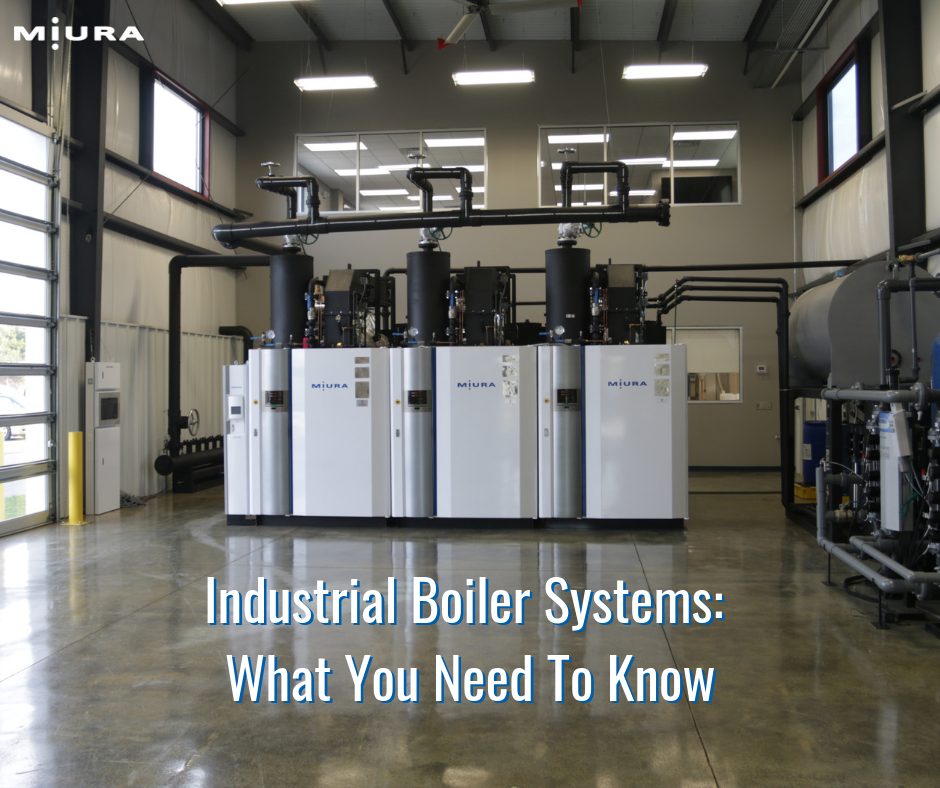 Industrial boiler systems can be a bit complicated. Unlike smaller, residential boilers that are tucked into a closet or basement and are so often forgotten about, industrial boilers are bigger, more powerful, and often times indispensable. In short, there’s a lot to know about understanding how industrial boilers work, what they do, and what to look for when looking for the right one.
Industrial boiler systems can be a bit complicated. Unlike smaller, residential boilers that are tucked into a closet or basement and are so often forgotten about, industrial boilers are bigger, more powerful, and often times indispensable. In short, there’s a lot to know about understanding how industrial boilers work, what they do, and what to look for when looking for the right one.
Who Uses Industrial Boilers?
Most people would probably be surprised to learn that a number of major industries are reliant on industrial steam boilers for their operations. Healthcare facilities and college campuses are two of the most notable. Both need to control the temperature of countless rooms, often times across several different buildings. This typically requires large amounts of steam, sometimes hundreds of thousands of pounds of steam every hour, being created by a boiler system in a centralized steam plant. Both healthcare facilities and universities also need enough hot water to prepare three meals a day for either patients or students, which requires even more steam.Any company that produces food or beverages also need an industrial boiler system functioning at a high level in order to maintain productivity. Food processing plants require hot water for cooking, while steam can also be useful for preparing or preserving the food they produce. Much like hospitals, they also use steam to clean and tools or utensils they use to help kill any germs or bacteria that could linger. Breweries are also dependent on their boiler system, as they need to heat up liquids to a specific temperature in order to create their concoctions the right way.
What Features Are Important?
To some extent, the features that are needed in a boiler depend on the industry needs and the specific facility. However, factors like safety, size, efficiency, and maintenance are always critical factors to consider for industrial boilers. For instance, modern water tube boilers are generally considered safer than traditional fire tube boilers, as there is a much lower risk of a catastrophic explosion. Water tube boilers are also much smaller than fire tube boilers, in some cases having a footprint that’s 50 percent smaller. This can be critical for facilities that don’t have a lot of room to dedicate to a boiler room.The efficiency of a boiler is also an important factor. Considering the expensive cost of fuel to operate a boiler, it’s critical to have a boiler that produces the most steam compared to the amount of fuel is being consumed. Surprisingly, smaller water tube boilers are more efficient than conventional fire tube boilers because they utilize less water, which also helps to keep fuel costs down. Water tube boilers also have the benefit of being easier to inspect and maintain. Routine inspections on fire tube boilers can take two or three days whereas some water tube boilers only have to be shut down for half a day for routine maintenance. Obviously, if it’s easier to keep up with routine maintenance, it’s easier to keep your boiler running for many years to come.
What’s the Best Boiler?
The industry leader in modern, water tube boilers is Miura, who offers both an LX and an EX model. The LX model is considered one of the most efficient boilers available. It’s half the size of conventional boilers but can start producing steam from a cold startup in less than five minutes. Miura’s LX series is also unbeatable with regard to environmental impact, as emissions of NOx are as low as 9ppm. Meanwhile, the EX model, while not quite as small, has many of the same qualities of the EX model, including the “floating header” design that helps the boiler produce steam in less than five minutes from a cold startup. Both models have an extensive safety and monitoring system, as well as the ability to reach a fuel-to-steam efficiency of 85 percent, which over time can lead to substantial savings in fuel costs.Contact a Miura sales rep in your area to learn more about Miura boilers and get help finding out what model is best for your facility. Contact Us




